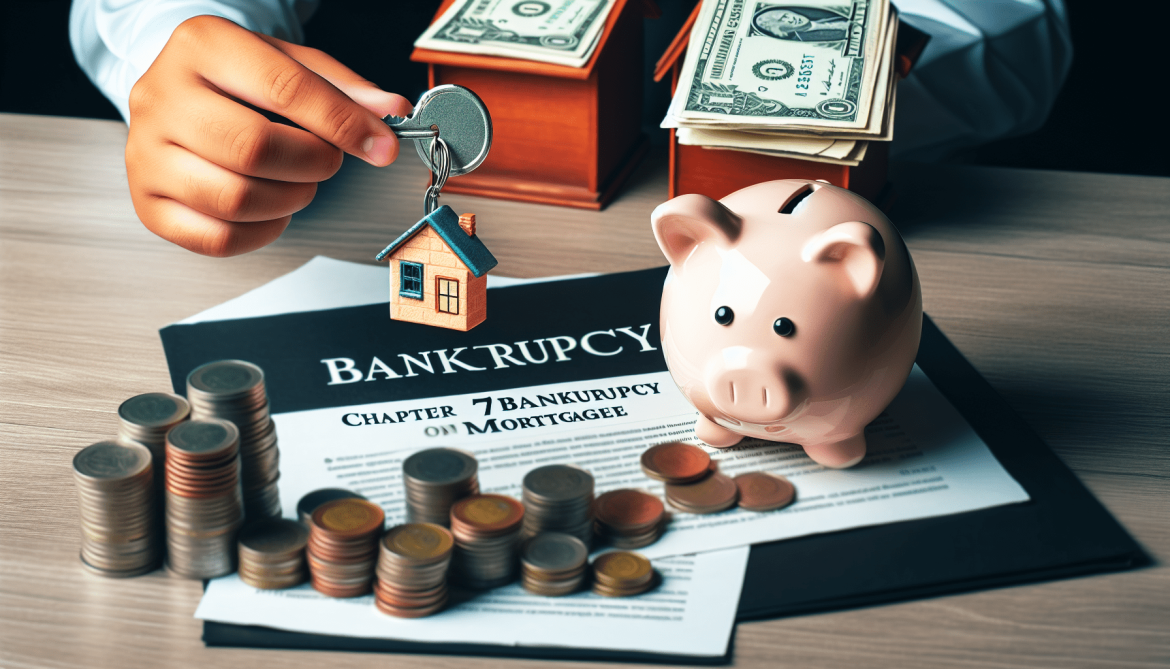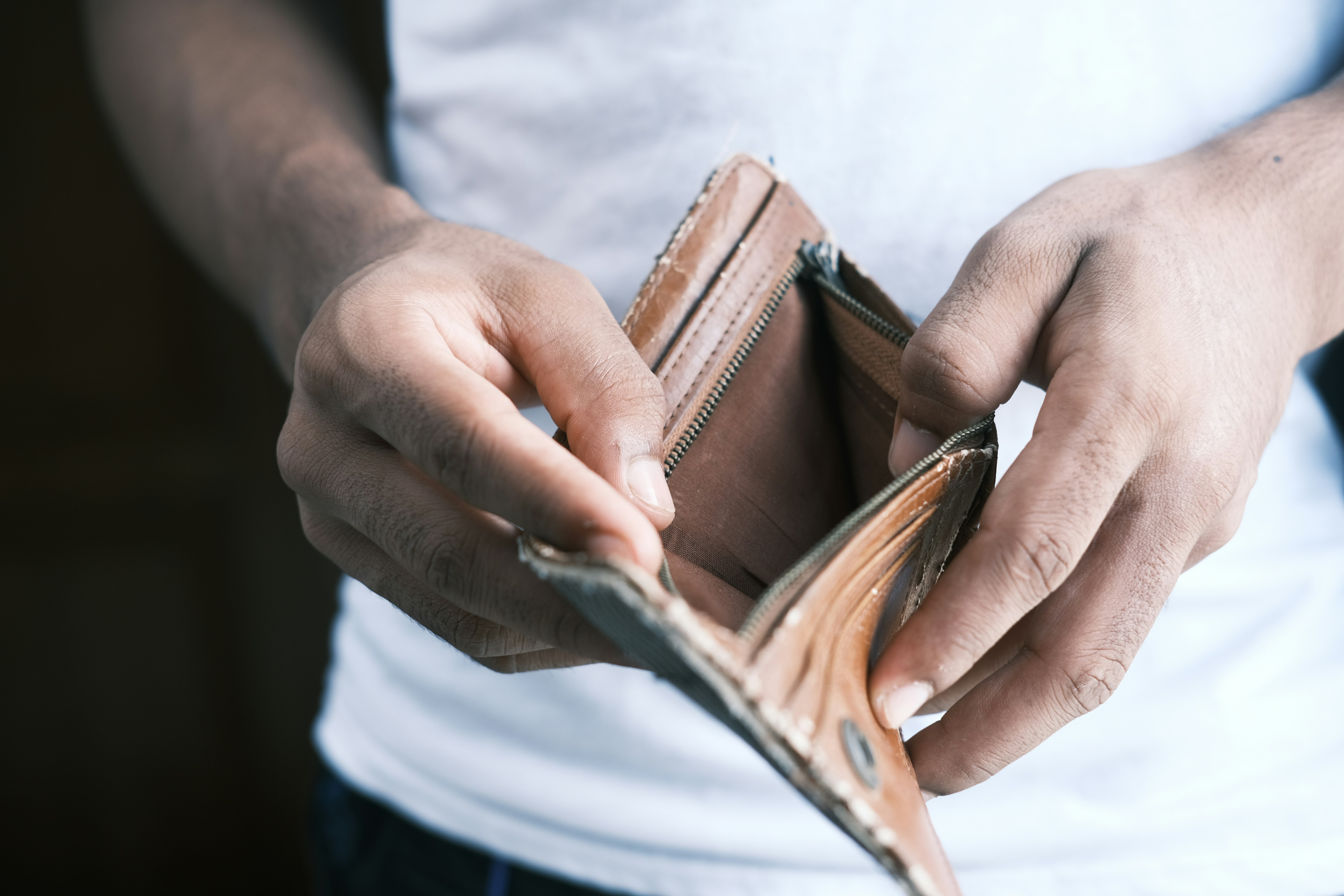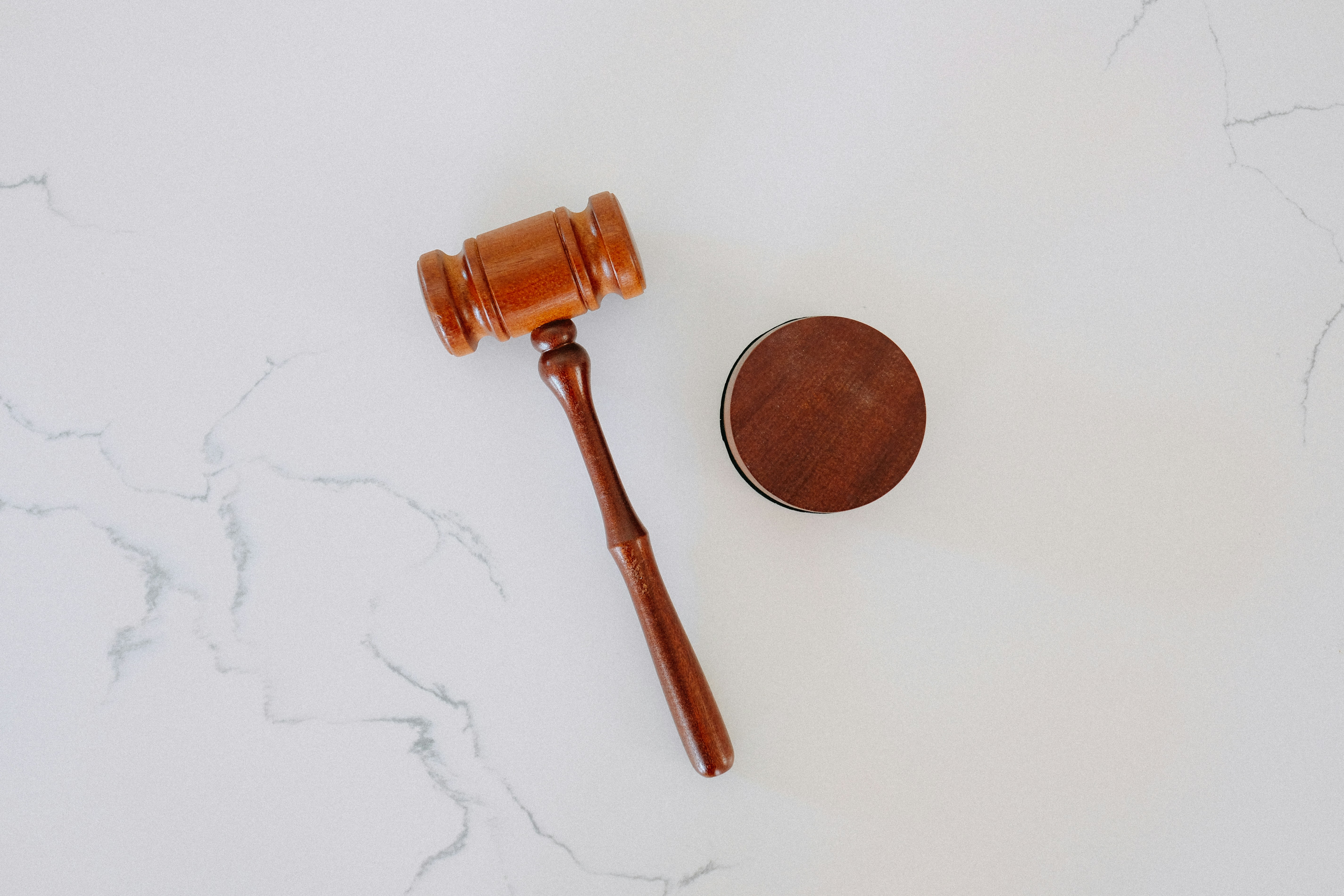Have you ever wondered how filing for Chapter 7 bankruptcy could affect your mortgage? Well, fear not! This article is here to shed some light on the topic. In this informative piece, we'll explore the ins and outs of Chapter 7 bankruptcy and its potential impact on your mortgage. If you're facing overwhelming debt and considering filing for bankruptcy, understanding how this legal process intertwines with your mortgage is crucial. So, grab a cup of coffee, get cozy, and let's navigate the world of Chapter 7 bankruptcy and its implications for your mortgage together.
This image is property of images.unsplash.com.
What is Chapter 7 Bankruptcy?
Chapter 7 bankruptcy is a legal process that provides individuals with overwhelming debts a fresh start by liquidating their non-exempt assets to repay their creditors. It is the most common form of bankruptcy filed in the United States and offers individuals relief from creditor harassment and the ability to eliminate most unsecured debts.
Understanding Chapter 7 Bankruptcy
Purpose of Chapter 7 Bankruptcy
The primary purpose of Chapter 7 bankruptcy is to provide individuals with significant debt relief by offering them a way to eliminate their unsecured debts, such as credit card bills, medical bills, and personal loans. It allows for a fresh start, allowing individuals to rebuild their financial lives without the burden of these debts.
Liquidation of Assets
In Chapter 7 bankruptcy, a court-appointed trustee will oversee the liquidation of your non-exempt assets. Non-exempt assets are those that are not protected by bankruptcy exemptions. These assets may include valuable personal property, investments, or real estate that exceeds the allowed exemption limits. However, it is important to note that many states have exemption laws that allow individuals to retain certain types and amounts of property.
Discharge of Debts
One of the main benefits of Chapter 7 bankruptcy is that it offers individuals a discharge of their qualifying debts. A debt discharge is a court order that eliminates the legal obligation to repay certain debts. This means that once the bankruptcy process is complete, you are no longer obligated to repay the discharged debts, providing you with a fresh financial start.
Means Test
To be eligible for Chapter 7 bankruptcy, individuals must pass a means test, which determines if their income falls below the state median income for their household size. The means test compares your average monthly income for the six months preceding your bankruptcy filing to the median income in your state. If your income is below the median, you automatically qualify for Chapter 7. However, if your income is above the median, further calculations are required to determine if you qualify.
Eligibility for Chapter 7 Bankruptcy
Income Requirements
As mentioned earlier, individuals must meet specific income requirements to qualify for Chapter 7 bankruptcy. These income requirements are determined through the means test, which considers your average monthly income and household size. If your income falls below the state median, you automatically pass the means test. However, if your income exceeds the median, additional calculations are needed to see if you qualify.
Credit Counseling
Another requirement for Chapter 7 bankruptcy eligibility is that individuals must complete a credit counseling course before filing. This course provides a basic understanding of personal finance and helps individuals explore alternatives to bankruptcy. It is important to choose an approved credit counseling agency to ensure the course meets the bankruptcy court's requirements.
Exemptions
Chapter 7 bankruptcy allows individuals to keep certain property through bankruptcy exemptions. These exemptions vary by state and can include items such as a primary residence, vehicle, clothing, household items, and retirement accounts, among others. Exemptions protect these assets from being liquidated during the bankruptcy process, allowing individuals to maintain some stability and possessions as they move forward.
The Process of Chapter 7 Bankruptcy
Filing the Petition
The first step in the Chapter 7 bankruptcy process is filing a petition with the bankruptcy court. This requires providing detailed information about your financial situation, including income, assets, debts, and expenses. You will also need to gather supporting documents, such as tax returns, bank statements, and pay stubs, to provide a complete picture of your financial circumstances.
Automatic Stay
Once the petition is filed, an automatic stay goes into effect, providing immediate relief from creditor actions. The automatic stay prohibits creditors from pursuing collections, including phone calls, letters, lawsuits, wage garnishments, and repossessions. The stay allows individuals to breathe a sigh of relief and gain some time to work through the bankruptcy process.
Meeting of Creditors
Approximately 25 to 40 days after filing the petition, a meeting of creditors, also known as a 341 meeting, takes place. This meeting is conducted by the bankruptcy trustee, who reviews your petition and asks questions about your financial situation. Creditors may attend the meeting and ask questions as well, although it is relatively uncommon for them to do so. The meeting provides an opportunity for everyone involved to clarify any information and address any concerns.
Asset Liquidation
If you have non-exempt assets, the bankruptcy trustee will proceed with the liquidation process. This involves selling the assets and distributing the proceeds to your creditors. It is essential to consult with a bankruptcy attorney to ensure that you take advantage of all available exemptions to protect as much of your property as possible.
Debt Discharge
The final step in the Chapter 7 bankruptcy process is receiving a debt discharge. Typically, debt discharge occurs approximately three to six months after filing the petition. Once your debts are discharged, you are no longer legally obligated to repay them. However, it is important to understand that certain types of debts, such as student loans, tax debts, and child support payments, are usually not dischargeable through Chapter 7 bankruptcy.
This image is property of images.unsplash.com.
Impact of Chapter 7 Bankruptcy on Mortgages
Secured and Unsecured Debts
In bankruptcy, debts are categorized as either secured or unsecured. Secured debts are those that are tied to specific collateral, such as a mortgage or car loan. Unsecured debts, on the other hand, are not tied to any collateral and are typically discharged through the bankruptcy process. Understanding the distinction between these types of debts is crucial in assessing the impact of Chapter 7 bankruptcy on mortgages.
Treatment of Mortgages in Chapter 7
Chapter 7 bankruptcy does not eliminate the mortgage itself, as it is a secured debt tied to the property. If you wish to keep your home, you must continue making mortgage payments to the lender. However, the bankruptcy may provide some relief by eliminating other unsecured debts, freeing up funds to better manage your mortgage payments. It is essential to communicate with your lender throughout the bankruptcy process to address any concerns and explore potential options.
Property Exemptions
In Chapter 7 bankruptcy, certain property exemptions may allow you to protect your home and equity. Homestead exemptions, for example, can protect a predetermined amount of equity in your primary residence. The exemption amount varies by state, so it is crucial to understand your state's laws to know if your equity is protected. By using exemptions wisely, you can often keep your home and protect your equity during the bankruptcy process.
Foreclosure and Bankruptcy
If you are in the midst of a foreclosure process, Chapter 7 bankruptcy can temporarily halt the proceedings through the automatic stay. This stay provides you with some time to negotiate with your lender, explore loan modification options, or find alternative housing arrangements. However, if you are unable to catch up on missed payments or work out a solution with your lender, the foreclosure process may resume once the bankruptcy case is closed.
Mortgage Reaffirmation
During Chapter 7 bankruptcy, you have the option to reaffirm your mortgage debt. Reaffirmation is an agreement between you and your lender that allows you to continue making mortgage payments after bankruptcy as if the bankruptcy never occurred. By reaffirming the debt, you maintain both the legal and financial obligations associated with the mortgage. It is important to carefully consider the pros and cons of reaffirmation and seek professional advice before making this decision.
Secured and Unsecured Debts
Difference between Secured and Unsecured Debts
Secured debts are loans that are backed by collateral, such as a home or car. These loans give the lender the right to repossess or foreclose on the collateral if the borrower fails to repay the loan. Unsecured debts, on the other hand, are not tied to any specific collateral and do not carry the same risk for the lender. Examples of unsecured debts include credit card bills, medical bills, and personal loans.
Priority of Debts in Bankruptcy
In bankruptcy, debts are prioritized based on their classification. Secured debts, due to their collateral, are usually given priority over unsecured debts. When it comes to liquidation and repayment, secured debts are typically satisfied before unsecured debts. However, it is important to note that even unsecured debts can be discharged through Chapter 7 bankruptcy, providing individuals with relief and a fresh start.
This image is property of images.unsplash.com.
Treatment of Mortgages in Chapter 7
Dischargeable and Non-dischargeable Debts
In Chapter 7 bankruptcy, certain debts are considered dischargeable, meaning they can be eliminated through the bankruptcy process. However, mortgage debts are typically non-dischargeable. This means that even if you file for Chapter 7 bankruptcy, you will still be responsible for repaying your mortgage debt. It is important to continue making mortgage payments to avoid the risk of foreclosure.
Exemption Limitations
While mortgage debts are generally non-dischargeable, bankruptcy exemptions can play a critical role in protecting your home and equity. Exemptions allow you to keep and protect specific amounts of equity in your primary residence. However, these exemption limits vary by state, so it is crucial to familiarize yourself with your state's laws to understand what protections are available to you.
Lien Avoidance
In some cases, Chapter 7 bankruptcy may provide an opportunity to avoid certain types of liens on your property. If a lienholder does not have a properly perfected lien or if your home's value is less than the amount owed on your mortgage, you may be able to avoid or "strip" the lien. This can provide you with additional relief and potentially reduce the overall burden of your mortgage debt.
Property Exemptions
Homestead Exemption
One of the critical exemptions in Chapter 7 bankruptcy is the homestead exemption. The homestead exemption allows you to protect a certain amount of equity in your primary residence from being liquidated to repay creditors. The exemption amount varies by state, ranging from a few thousand dollars to several hundred thousand dollars. Understanding your state's homestead exemption laws is essential in safeguarding your home during the bankruptcy process.
Exemption Criteria
To qualify for the homestead exemption, there are certain criteria that must be met. These criteria may include factors such as being the legal owner of the property, using it as your primary residence, and maintaining residency for a specific period of time. It is crucial to review the specific requirements in your state to ensure that you meet the criteria for the homestead exemption.
Protecting Equity
The homestead exemption can play a vital role in protecting your home's equity during Chapter 7 bankruptcy. Equity represents the value of your home that exceeds the amount owed on your mortgage. By utilizing the homestead exemption wisely, you can often safeguard your equity, allowing you to keep your home and maintain a financial stake in your property.
Foreclosure and Bankruptcy
Impact of Chapter 7 Bankruptcy on Foreclosure
If you are facing foreclosure, filing for Chapter 7 bankruptcy can provide temporary relief through the automatic stay. The automatic stay goes into effect immediately upon filing and puts a halt to all foreclosure proceedings. This stay gives you the opportunity to explore options such as loan modification, repayment plans, or negotiating with your lender without the added pressure of impending foreclosure.
Temporary Delay of Foreclosure
While Chapter 7 bankruptcy can temporarily delay foreclosure, it is important to note that it does not permanently stop the process unless a solution is reached with your lender. The length of the delay will depend on various factors, including the timeline of your bankruptcy case and any negotiations with your lender. It is crucial to use the time provided by the automatic stay to actively seek a resolution to prevent foreclosure.
Voluntary Surrender of Property
If you are unable to afford your mortgage payments or decide that keeping the property is not feasible, Chapter 7 bankruptcy offers an option for voluntary surrender of the property. Voluntary surrender allows you to relinquish the property to your lender, eliminating your financial obligation and freeing you from the ongoing burden of mortgage payments. This option can provide a fresh start and the ability to move forward without the weight of an unaffordable mortgage.
Mortgage Reaffirmation
Reaffirming the Debt
During Chapter 7 bankruptcy, you have the choice to reaffirm your mortgage debt. Reaffirmation means that you enter into a new agreement with your lender, essentially excluding your mortgage from the bankruptcy discharge. By reaffirming the debt, you continue to be legally responsible for repaying your mortgage as if the bankruptcy never occurred.
Pros and Cons of Mortgage Reaffirmation
Reaffirming your mortgage debt can have both advantages and disadvantages. The primary advantage is that it allows you to keep your home and maintain a positive payment history, which can be beneficial for your credit score. Additionally, reaffirming the debt provides you with the opportunity to renegotiate the terms of your mortgage, potentially reducing your monthly payments. However, it is crucial to weigh the potential risks, such as staying liable for the debt and the potential consequences if you default on the reaffirmed mortgage in the future.
Legal Consequences
Reaffirming your mortgage debt is a serious legal commitment. By reaffirming, you essentially waive your right to discharge the debt in bankruptcy. If you subsequently default on the reaffirmed mortgage, your lender can pursue foreclosure and any deficiency judgment for the remaining balance owed. It is essential to carefully consider the legal consequences and consult with a bankruptcy attorney before making a decision regarding mortgage reaffirmation.
In conclusion, Chapter 7 bankruptcy can provide individuals with overwhelming debts a fresh start by liquidating their non-exempt assets and eliminating most unsecured debts. The process involves passing a means test, completing credit counseling, and filing a petition with the bankruptcy court. While Chapter 7 does not discharge mortgage debts, it can provide temporary relief through the automatic stay and offer options such as reaffirmation or voluntary surrender to address mortgage concerns. It is crucial to understand the impact of Chapter 7 bankruptcy on mortgages and explore all available options before making any decisions.




